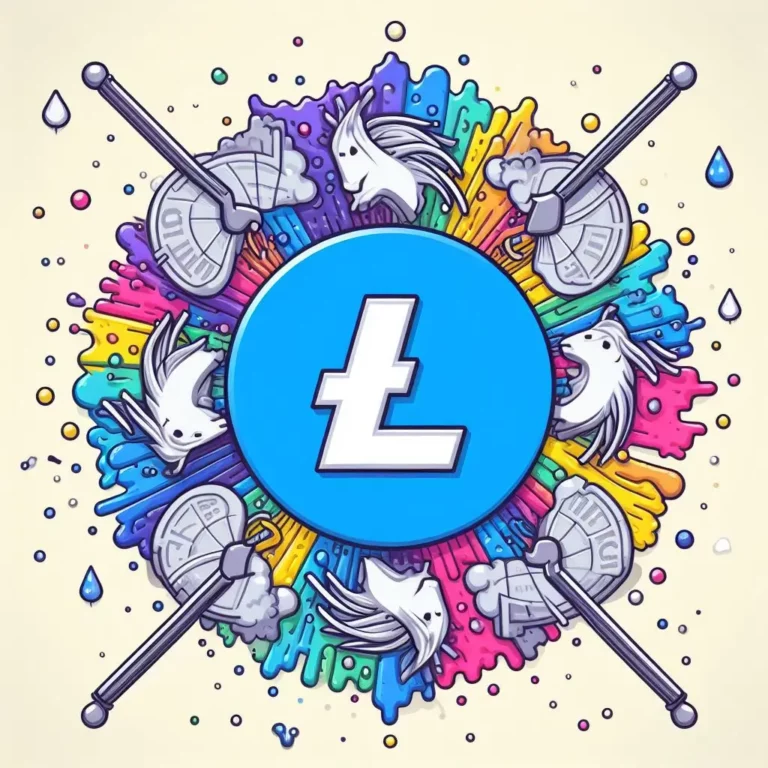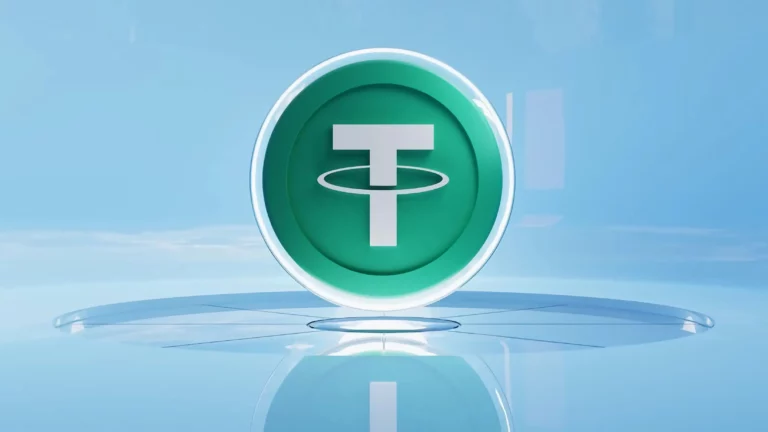If you’ve heard of Bitcoin, you’re already familiar with the concept of cryptocurrency. Ethereum does things that Bitcoin can’t. While Bitcoin mainly acts as digital money, Ethereum goes further by allowing for smart contracts and decentralized applications. Ethereum distinguishes itself from Bitcoin by introducing a world of smart contracts, decentralized applications, and a new era of digital empowerment.
Ethereum was proposed by a young computer scientist named Vitalik Buterin in late 2013. It became a reality when the Ethereum network was launched in July 2015. Think of it as the moment when a new chapter in the world of blockchain technology began. Buterin’s vision was to create a blockchain platform that goes beyond simple digital transactions, enabling a wide range of decentralized applications. This vision led to the birth of Ethereum, and it has been evolving ever since.
Why is Ethereum unique?
The fundamental concept of Ethereum is smart contracts. These are self-executing contracts with the terms of the agreement between buyer and seller being written directly into code. Think of it as a digital vending machine; when you put in the right amount, you get what you want automatically, without the need for a human mediator.
Smart contracts can be applied to various scenarios, from automating financial transactions to managing supply chains and more. They provide security, efficiency, and transparency, making them a powerful tool for a wide range of applications.
Features of Ethereum
Ethereum, often referred to as the “world computer,” boasts a unique set of features that set it apart from other blockchain technologies. In this article, we’ll delve into these key characteristics that define Ethereum: its decentralization, programmability, security, and scalability.
1. Decentralized
One of Ethereum’s most defining features is its decentralization. Think of it as a system that operates without a central authority, like a government or a bank.
In the traditional financial world, banks oversee transactions and store data. Ethereum, on the other hand, relies on a vast network of computers (nodes) spread across the globe, ensuring that no single entity has control.
Imagine you and your friends all have copies of a shared document. Any changes to the document must be agreed upon by everyone, making it democratic and resistant to manipulation. That’s how Ethereum’s decentralization works, ensuring transparency and security.
2. Programmable
Ethereum is often described as “programmable money.” It’s like having money that can perform specific tasks based on predefined rules. These rules are known as smart contracts, which automatically execute when certain conditions are met.
For instance, you could create a smart contract that releases payment to a freelancer as soon as they complete a project, without any human interference.
Think of a vending machine: you put in money, and it gives you the product. In Ethereum, smart contracts are like automated vending machines for various tasks, from transferring money to complex operations like managing supply chains.
3. Secure
Security is a top priority in the world of cryptocurrencies, and Ethereum is no exception. It’s designed to be robust and tamper-resistant. The network uses advanced cryptography to protect your data and transactions. The code that powers Ethereum has been tested rigorously by developers and researchers to ensure it’s as secure as possible.
In the physical world, think of Ethereum’s security like a vault with an unbreakable lock. Your assets are safe, and you have peace of mind that they won’t be compromised.
4. Scalable
Scalability is crucial for any technology to succeed in the long run. Ethereum is constantly working to improve its scalability, aiming to handle more transactions without slowing down. This is essential as Ethereum becomes more popular and more people and businesses use it for various purposes.
Benefits of Ethereum
Ethereum offers a host of benefits that make it stand out in the world of blockchain technology.
1. Smart Contracts
Smart contracts are like digital agreements that run automatically when specific conditions are met. Picture a vending machine: you put in money, and it gives you a snack without the need for a human cashier. In Ethereum, smart contracts do the same but for various tasks, from transferring money to complex operations like managing supply chains. They’re efficient, secure, and reduce the need for intermediaries, making processes faster and more cost-effective.
2. Decentralized Applications (dApps)
Ethereum is the birthplace of decentralized applications, or dApps for short. These are like regular apps but without a single company controlling them. Instead, they run on a decentralized network, ensuring fairness and transparency. For instance, there are dApps for finance, gaming, and even social networking. Imagine using an app without worrying about a central company tracking your every move – that’s the power of dApps.
3. Non-fungible Tokens (NFTs)
Non-fungible tokens, or NFTs, are digital assets that represent ownership of unique items, such as digital art, collectibles, or virtual real estate. They’re different from cryptocurrencies like Bitcoin or Ethereum, which are interchangeable. NFTs are like digital certificates of authenticity, proving the uniqueness and ownership of digital assets. They’ve opened up a whole new world of digital collectibles and art ownership, allowing artists and creators to reach a global audience.
4. Open and Transparent Ecosystem
Ethereum operates on a public blockchain, which means anyone can see its transactions and code. It’s like an open book, accessible to anyone who wants to verify or study it. This openness and transparency are fundamental to trust in the digital realm, making sure everything works as it should. It’s a bit like being able to check your bank’s financial records at any time to ensure everything is in order.
Use Cases of Ethereum
Ethereum, the blockchain technology that’s reshaping our digital landscape, is not just a theoretical concept; it’s making a real impact in various industries. In this article, we’ll explore how Ethereum is put to work in practical applications, spanning financial services, supply chain management, gaming and entertainment, and even social media and networking.
1. Financial Services
Ethereum is revolutionizing financial services by enabling decentralized finance, commonly known as DeFi. Think of it as a financial playground where you can lend, borrow, trade, and invest in digital assets, all without the need for banks or intermediaries. DeFi apps on Ethereum offer features like earning interest on your crypto, swapping one digital currency for another, and even providing loans to individuals or businesses. It’s a financial world that’s open to everyone, accessible 24/7.
2. Supply Chain Management
Supply chain management is a complex process involving the production, shipment, and delivery of products from manufacturers to consumers. Ethereum’s blockchain technology offers a transparent and tamper-proof way to track goods at every step of this journey. For example, you can check if your organic coffee was indeed grown in an eco-friendly manner and see its journey from farm to your cup. This transparency reduces fraud, ensures product quality, and simplifies recalls when issues arise.
3. Gaming and Entertainment
Gaming and entertainment are areas where Ethereum has truly unleashed creativity. Consider virtual worlds where you own in-game assets as digital collectibles. These assets are represented as non-fungible tokens (NFTs) on the Ethereum blockchain, proving their uniqueness and ownership. In-game items, digital art, and even virtual real estate can be owned and traded on Ethereum, offering new experiences and financial opportunities in the gaming and entertainment industry.
4. Social Media and Networking
Ethereum is also making its mark in the world of social media and networking. Decentralized social networks and applications are being built on Ethereum’s platform, giving users more control over their data and interactions. In these platforms, users can own their content, decide who sees it, and even earn cryptocurrency for their contributions. It’s a shift towards more user-centric and transparent social networking, empowering individuals and fostering a sense of community.
Ethereum’s applications extend far beyond these use cases, but these examples showcase its versatility and transformative potential across various industries.
How to Buy and Sell Ethereum
Now that you’ve learned about Ethereum and its various applications, you might be wondering how to get your hands on some Ether (ETH), Ethereum’s native cryptocurrency. In this section, we’ll explore the different methods for buying and selling Ethereum, making it accessible to anyone interested in participating in this exciting digital realm.
Cryptocurrency Exchanges
Cryptocurrency exchanges are the primary gateway for buying and selling Ethereum. These platforms operate much like traditional stock exchanges, allowing users to trade digital assets, including Ethereum. To get started, you’ll need to create an account, complete any necessary identity verifications, and deposit funds into your exchange wallet. Once your account is funded, you can place buy or sell orders for Ethereum.
Think of a cryptocurrency exchange as a digital marketplace where you can buy and sell Ethereum much like you would shop online or exchange currency at a physical foreign exchange desk.
Peer-to-Peer Marketplaces
Peer-to-peer (P2P) marketplaces offer another route to acquire Ethereum. On these platforms, users can directly connect with one another to buy or sell ETH. Transactions may involve various payment methods, from bank transfers to cash payments. P2P marketplaces are a bit like digital classifieds, where individuals negotiate terms and conditions for Ethereum trades.
Imagine it as a digital barter system where you can agree on a deal directly with another person. P2P marketplaces provide a more flexible and sometimes private way to acquire Ethereum.
Ethereum Wallets
Before you engage in buying or selling Ethereum, you’ll need a safe place to store your ETH, and that’s where Ethereum wallets come into play. These wallets are like digital safes, securing your cryptocurrencies from theft or loss. Ethereum wallets come in various forms, such as software wallets that run on your computer or smartphone and hardware wallets that are akin to physical security vaults.
Think of your Ethereum wallet as your personal bank account for digital currency. It’s where you store your Ether and access it for transactions. Just like you’d want your physical wallet to be safe and secure, your Ethereum wallet plays a crucial role in protecting your digital assets.
Conclusion
Imagine a world where financial services are accessible to all, without the need for traditional banks, where supply chain management becomes more transparent and efficient, and where gaming, entertainment, and social networks are user-centric, offering new possibilities and rewards for participants. Ethereum’s versatility is bound to bring these visions to life.
With its open and transparent ecosystem, Ethereum sets the stage for trust in the digital realm. As more people realize the value of this transparency, we may see an increase in its adoption, bringing Ethereum closer to the masses.
Ethereum’s future is undeniably promising. With its ongoing development and growing adoption, it’s positioned to play a crucial role in shaping the digital landscape. As more developers flock to create decentralized applications and smart contracts, we can expect an expansion in its use across various industries.
In conclusion, Ethereum is more than a digital innovation; it’s a movement towards a more inclusive, transparent, and efficient digital world. As it continues to evolve, Ethereum offers a glimpse of a future where technology empowers individuals, fosters innovation, and transforms industries. While we can’t predict the future with absolute certainty, Ethereum’s journey is one worth watching, as it shapes the digital landscape for generations to come.






